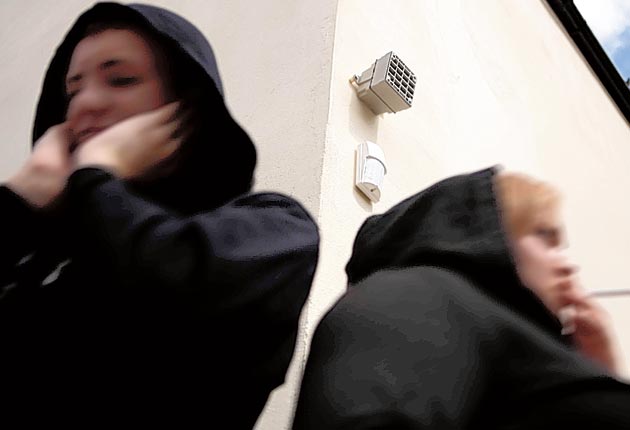Teen-repellent buzzing devices ruled disciminatory

Your support helps us to tell the story
From reproductive rights to climate change to Big Tech, The Independent is on the ground when the story is developing. Whether it's investigating the financials of Elon Musk's pro-Trump PAC or producing our latest documentary, 'The A Word', which shines a light on the American women fighting for reproductive rights, we know how important it is to parse out the facts from the messaging.
At such a critical moment in US history, we need reporters on the ground. Your donation allows us to keep sending journalists to speak to both sides of the story.
The Independent is trusted by Americans across the entire political spectrum. And unlike many other quality news outlets, we choose not to lock Americans out of our reporting and analysis with paywalls. We believe quality journalism should be available to everyone, paid for by those who can afford it.
Your support makes all the difference.Europe's human rights watchdog today slammed controversial "youth dispersal" devices for treating young people like "unwanted birds or pests".
The Council of Europe's Parliamentary Assembly, made up of MPs from the 47 member states of the human rights body, unanimously endorsed growing calls for a ban on all machines designed to scatter youngsters by emitting a powerful high-pitched noise.
Earlier this week the Children's Commissioner for England, Al Aynsley-Green, renewed his campaign for a ban on the Mosquito devices designed to be audible to almost everybody under 20, but few over 25.
The aim is to stop gangs loitering, and move them on.
Mr Aynsley-Green said use of such tactics demonised young people and breached their human rights.
More than 3,000 are now in use in the UK, increasingly taken up by local authorities as a means of heading off trouble before it starts.
But Mr Aynsley-Green said the devices were indiscriminate, targeting all children and young adults, regardless of whether they were misbehaving.
Today the Assembly of the Strasbourg-based Council of Europe agreed, adopting a resolution saying the devices were "highly offensive".
They "discriminate against young people, treating them as if they are unwanted birds or pests", it said.
The Assembly warned of a breach of human rights, including the "right to private life" and "freedom of assembly", safeguarded by the Human Rights Convention, to which all Council of Europe members, including the UK, are signatories.
The effect of the devices might even amount to illegal "degrading treatment" because they inflict "acoustic pain".
The Mosquito machines are also marketed in Belgium, France, Germany, Ireland, the Netherlands and Switzerland, and the Assembly called on governments, parliaments and local authorities to ban them in public places and their sale for use on private premises.
The Assembly also called for the promotion, "in consultation with youth forums at the local level", of more indoor and outdoor physical, intellectual and leisure recreation facilities for young people.
Isabella Sankey, policy director at human rights organisation Liberty, said: "The Council of Europe's vote against the 'Mosquito' must be the beginning of the end for this untested, unregulated sonic weapon against children.
"Any similar device targeted at one race or gender would provoke a national outcry - why do Britain's young deserve less protection?"
Join our commenting forum
Join thought-provoking conversations, follow other Independent readers and see their replies
Comments